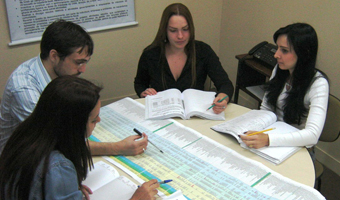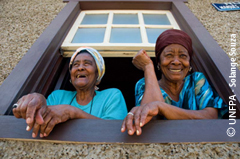Citizen-driven Transparency Prevails over Corruption in Brazilian City

Detaining corruption before it happens to avoid losing one single peso of public funds is the goal of the Social Observatory of Maringá, a city of 335,000 inhabitants located in the Brazilian State of Paraná.
This project won first place in the 2008-2009 round of the Experiences in Social Innovation contest organized by ECLAC with the support of the Kellogg Foundation, and its model is being replicated in over 35 Brazilian cities.
“The community mobilizes to monitor government purchases, preventing fraud, corruption and the waste of public funds, a clamor throughout Latin America,” said Nohra Rey de Marulanda, spokesperson of the Selection Committee that awarded the project from among 400 other applicants in Latin America and the Caribbean.
It all began when a Maringá mayor deviated US$50 million of municipal funds. People were outraged, the culprits were tried, but the money was never returned to the public coffer.
“We had to do something. An employee at the mayor’s office would sign a check and then buy a new car. The money was public but not the public’s,” recalled Ariovaldo Costa Paulo, Vice-president of the Observatory and founder of Ethically Responsible Society (SER).
In 2006, public employees, businesspersons, academics, students, judges and religious leaders came together to create the Observatory, a non-partisan tool of social control that monitors public spending. The Observatory has five paid staff members and 70 volunteers.
With the help of Internet, the Observatory tracks bidding processes in real time. When an offer is made, the organization goes over it to make sure it doesn’t contain any anomalies, monitors the process in which proposals are presented and awarded, comparing the prices charged, and then makes the information public through a database. Finally, it oversees the implementation of the project itself to make sure that its quality and quantity correspond to the amount paid for it.
Over three years, the Observatory has been able to save US$12 million. With these “extra” funds, public spending in education rose 25% and in health 12%. Education improved and gymnasiums were built.
People’s perspective on paying taxes changed. “Brazil has one of the highest tax burdens in the world, around 40%, but we weren’t receiving the services,” said Costa Paulo.
With the success of the Social Observatory, the population understands the importance of paying taxes as “the only sustainable source of funds to ensure social justice,” he added.
The other prize-winners
A group of 170 women from the impoverished community of Ayoquezco de
Aldama, in Oaxaca, Mexico, won second place in the contest. These
women invested the remittances sent by their migrant husbands in a
processing plant for the nopal (a very popular edible cactus) they
grow at home, exporting the product to their compatriots in the
United States in association with a company composed of migrants to
market it.
Third prize went to a health service project for Panamanian
indigenous people who every year go to Costa Rica to harvest coffee.
The model respects their culture and adapts to their conditions of
labour mobility, poverty, customs and language.
The fourth place was for a Chilean project that assists the
handicapped in rural areas in a center whose costs are covered by
the sale of waste, which is the means of payment. Families take on a
primordial role in rehabilitation, the disabled can work and the
community collaborates.
The Storyteller Grandmothers from Chaco, Argentina, won the fifth
place for their success in solving the needs of children and the
elderly at the same time: children learn to love reading and the
grandmother volunteers are recognized by society for their solidary
work.
About 4,800 projects from all over the region have been submitted to the five rounds of the Experiences in Social Innovation project. The contest has awarded 72 initiatives that have proven to be innovative.
This year, the Experiences in Social Innovation project will systematize and disseminate these initiatives. They are innovative, cost-efficient and have had excellent results, and therefore, may be replicated elsewhere. ECLAC believes it is of vital importance that these experiences be known by others who can implement them to change the living conditions of the region’s population.








